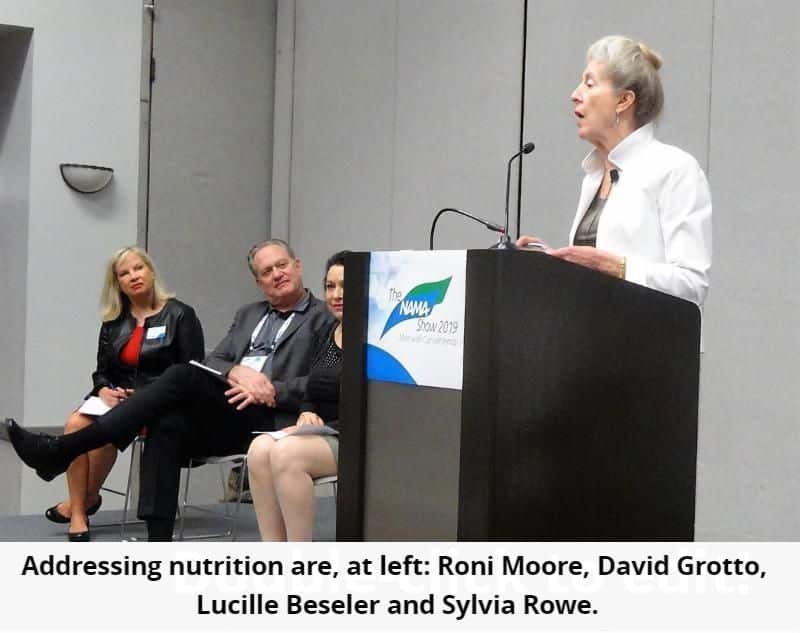NAMA Show Report: Health And Wellness Concerns Expand, Further Challenging Convenience Services

Every year, more exhibits at the National Automatic Merchandising Association show feature products higher in nutrition and fiber, containing less sugar and artificial colors. But besides being concerned about personal health and wellness, today’s consumers want to know the products they buy are not harming the environment. They want product labels that explain the nutritional content, where they are sourced from, and what causes the company supports, such as animal rights and child welfare.
Consumers today want more information about food products than ever before, according to a panel of experts speaking on nutrition and wellness at the recent NAMA show in Las Vegas.
Panel moderator Sylvia Rowe, president of SR Strategy LLC, a food policy consultant, said concern about nutrition and wellness is greater than ever because of issues related to health that are not strictly about health. For example, improved health awareness has driven increased production of fruits and vegetables, but consumers are now concerned about how agriculture impacts the environment.
Which is not to say consumers are any less concerned about health. Rowe said obesity rates have not improved in the last 15 years, when the nutritionists began raising concern about its impact on public health.
Lucille Beseler, a registered dietitian and president of the Academy of Nutrition and Dietetics, said obesity and Type 2 diabetes are occurring in people of all ages. These problems have become more serious as people are eating more meals away from home. Beseler said she knows this first hand from the patients her health care practice in South Florida sees.
As a result, pediatricians are no longer advising parents they should allow children to eat snacks, she said.
More food companies are introducing nuts, seeds, fruits and vegetables in snacks to allow people to follow a healthier diet, she said, acknowledging that some people are allergic to seeds and nuts.
Fruit and vegetable smoothies have also been introduced as healthy alternatives to sugar-based snacks, she said.
Healthy alternatives also include whole grains, which lower cholesterol and triglycerides, Beseler said.
David Grotto, a registered dietitian and a senior wellbeing business partner at the Kellogg Co., said ketogenic diets and gluten-free diets have become popular in recent years. Ketogenic diets encourage the consumption of carbohydrates from vegetables with the exception of root-based vegetables.
But even as more consumers are choosing healthier products, most away-from-home purchase decisions are driven by taste, Grotto said.
He said where nutritionist recommend 30 grams of sugar per day, the average American consumes 80 grams.
Rowe said consumers are unfortunately influenced by celebrities.
Food manufacturers are using “clean” labels on their packaging, but there is no consistent definition of a “clean” label, the panelists noted.
Roni Moore, NAMA vice president of public relations, said younger consumers want simpler labels. They want to be able to pronounce the ingredients, she said, and they don’t want labels to contain more than for ingredients.
Moore noted that NAMA has offered its Fit Pick program since 2005 to help vending operators meet consumer demand for healthier products. The program tags products based on their nutrition content.
By Karen Scott, Publisher
![]() Home | NEW PRODUCTS | Vending Newsletter sign up | Contact us | email press release
Home | NEW PRODUCTS | Vending Newsletter sign up | Contact us | email press release
Also see: Beverages, Snacks, Foods, Brokers, Chips, Nuts, Energy bars, Fruit Snacks, Meat Snacks, Salty Snacks, Candy, Trail Mix, Gluten Free, Healthy Snacks, Pastries, Cookies, Crackers, Foods, Hispanic Snacks,
Also see: Product Brokers, Product Distributors, Micro Markets | Vending Companies USA
VENDING YELLOW PAGES DIRECTORIES:
Call us at 1-800-956-8363 or POST YOUR COMPANY




